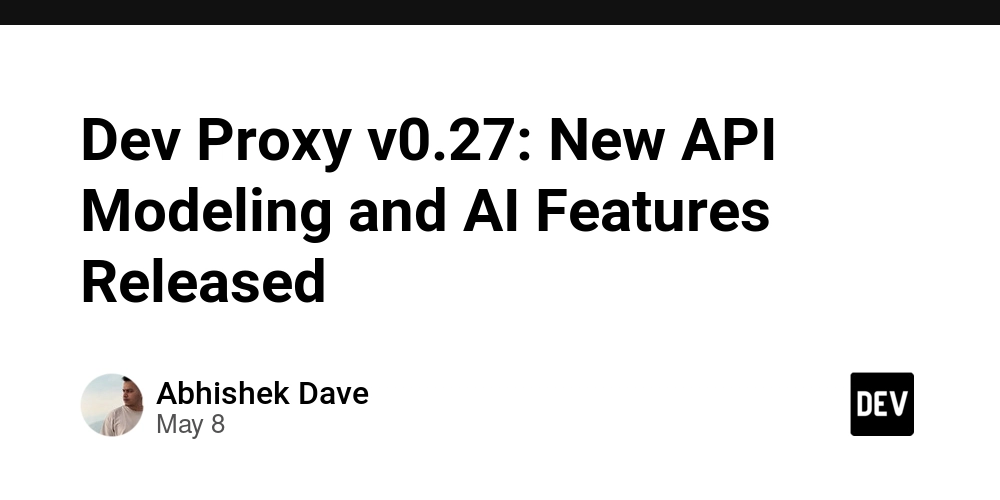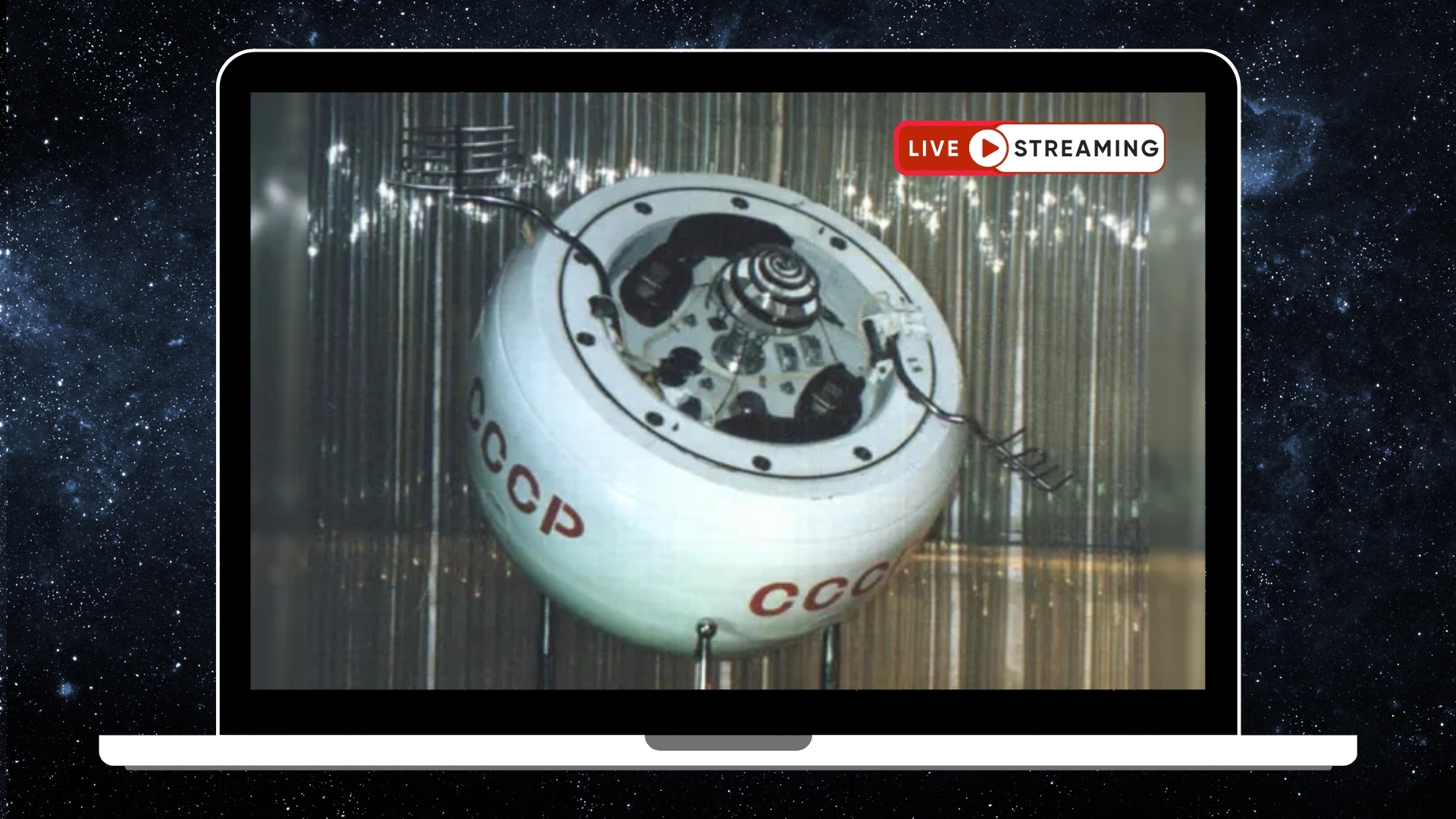Dev Proxy v0.27: New API Modeling and AI Features Released
Originally published at ssojet The Microsoft Dev Proxy team has announced the release of version 0.27, enhancing developer experience through new features and improvements. This tool, previously known as Microsoft 365 Developer Proxy, helps in mimicking genuine API behaviors during application testing. Key Features One major addition is the capability to generate TypeSpec definitions from intercepted requests. This feature allows developers to quickly create TypeSpec definitions from real traffic, streamlining the API modeling process. It works similarly to generating OpenAPI specifications, enhancing productivity. Another important feature is the experimental Dev Proxy MCP server, enabling configuration using natural language. This aims to simplify the user experience and enhance understanding of Dev Proxy's capabilities. The update also refines the local Language Model (LM) connection, making it generic and allowing compatibility with any language model client that exposes OpenAI-compatible APIs. For additional improvements, Dev Proxy's JSON schemas now include descriptions and markdown support, facilitating better property configuration. The Dev Proxy Toolkit extension for Visual Studio Code has also seen updates, now featuring new commands and updated code snippets. For a comprehensive list of changes, refer to the official release notes. Nested App Authentication Nested App Authentication (NAA) is now generally available across all hosts and platforms in Microsoft 365, simplifying authentication for Personal Tab Teams apps. New Features NAA provides a more secure sign-in experience while simplifying development. It supports integration across desktop, mobile, and web applications, allowing tokens to be fetched directly from client code without a middle-tier service by leveraging the Microsoft Authentication Library (MSAL.js). NAA also enables dynamic consent for scope permissions, removing the need for third-party cookies, thereby ensuring uninterrupted user authentication. To get started with NAA: Register Your App with Entra ID Update Redirect URIs. Integrate the latest Microsoft Teams JavaScript SDK. Add a fallback authentication method for legacy hosts. Test across environments. For detailed guidance, refer to the Nested App Authentication documentation and the sample app repository. Updated Teams AI Library The updated Teams AI Library has been introduced to assist developers in creating powerful agents for Microsoft Teams. The library now supports enhanced capabilities, enabling faster development processes. Key Enhancements The updated library allows developers to build agents up to 90% faster by streamlining the SDK. The code sample below illustrates how to initiate user interactions: import { App } from '@microsoft/teams.apps'; const app = new App(); app.on('message', async ({ api, isSignedIn, send, signin }) => { if (!isSignedIn) { await signin(); // initiates Entra login flow } const me = await api.user.me.get(); // Get user profile from Graph await send(`Hello, ${me.displayName}!`); // Send a message response }); The enhancements include reduced boilerplate code by 70-90% and seamless integration of adaptive cards for a richer user experience. For more information, access the quick-start guide. Model Context Protocol (MCP) The library introduces support for the Model Context Protocol (MCP), which allows agents to share memory and tools through a common interface, enhancing multi-agent workflows. Developers can refer to the MCP server guide for integration details. Microsoft Intune Updates Microsoft Intune has been updated to enhance app management and device security. App Management Intune now supports app protection policies for Apple specialty devices, particularly Microsoft Edge, OneDrive, and Outlook. Admins can set configurations for these apps in the app protection policy. For details, see Protect data on VisionOS devices. Device Security New settings have been added to the Windows security baseline version 24H2, including management options for the Windows Configuration Service Provider (CSP). For complete information, refer to Intune security baselines. Device Configuration The updated device configuration template for Windows Delivery Optimization now reflects settings as found in the Settings Catalog. For further details, see Delivery Optimization. For complete updates, visit the Microsoft Intune documentation. Explore how SSOJet can enhance your enterprise authentication with secure SSO, MFA, and Passkey solutions. Learn more at ssojet.com.

Originally published at ssojet
The Microsoft Dev Proxy team has announced the release of version 0.27, enhancing developer experience through new features and improvements. This tool, previously known as Microsoft 365 Developer Proxy, helps in mimicking genuine API behaviors during application testing.
Key Features
One major addition is the capability to generate TypeSpec definitions from intercepted requests. This feature allows developers to quickly create TypeSpec definitions from real traffic, streamlining the API modeling process. It works similarly to generating OpenAPI specifications, enhancing productivity.
Another important feature is the experimental Dev Proxy MCP server, enabling configuration using natural language. This aims to simplify the user experience and enhance understanding of Dev Proxy's capabilities.
The update also refines the local Language Model (LM) connection, making it generic and allowing compatibility with any language model client that exposes OpenAI-compatible APIs.
For additional improvements, Dev Proxy's JSON schemas now include descriptions and markdown support, facilitating better property configuration.
The Dev Proxy Toolkit extension for Visual Studio Code has also seen updates, now featuring new commands and updated code snippets.
For a comprehensive list of changes, refer to the official release notes.
Nested App Authentication
Nested App Authentication (NAA) is now generally available across all hosts and platforms in Microsoft 365, simplifying authentication for Personal Tab Teams apps.
New Features
NAA provides a more secure sign-in experience while simplifying development. It supports integration across desktop, mobile, and web applications, allowing tokens to be fetched directly from client code without a middle-tier service by leveraging the Microsoft Authentication Library (MSAL.js).
NAA also enables dynamic consent for scope permissions, removing the need for third-party cookies, thereby ensuring uninterrupted user authentication.
To get started with NAA:
- Register Your App with Entra ID
- Update Redirect URIs.
- Integrate the latest Microsoft Teams JavaScript SDK.
- Add a fallback authentication method for legacy hosts.
- Test across environments.
For detailed guidance, refer to the Nested App Authentication documentation and the sample app repository.
Updated Teams AI Library
The updated Teams AI Library has been introduced to assist developers in creating powerful agents for Microsoft Teams. The library now supports enhanced capabilities, enabling faster development processes.
Key Enhancements
The updated library allows developers to build agents up to 90% faster by streamlining the SDK. The code sample below illustrates how to initiate user interactions:
import { App } from '@microsoft/teams.apps';
const app = new App();
app.on('message', async ({ api, isSignedIn, send, signin }) => {
if (!isSignedIn) {
await signin(); // initiates Entra login flow
}
const me = await api.user.me.get(); // Get user profile from Graph
await send(`Hello, ${me.displayName}!`); // Send a message response
});
The enhancements include reduced boilerplate code by 70-90% and seamless integration of adaptive cards for a richer user experience. For more information, access the quick-start guide.
Model Context Protocol (MCP)
The library introduces support for the Model Context Protocol (MCP), which allows agents to share memory and tools through a common interface, enhancing multi-agent workflows. Developers can refer to the MCP server guide for integration details.
Microsoft Intune Updates
Microsoft Intune has been updated to enhance app management and device security.
App Management
Intune now supports app protection policies for Apple specialty devices, particularly Microsoft Edge, OneDrive, and Outlook. Admins can set configurations for these apps in the app protection policy. For details, see Protect data on VisionOS devices.
Device Security
New settings have been added to the Windows security baseline version 24H2, including management options for the Windows Configuration Service Provider (CSP). For complete information, refer to Intune security baselines.
Device Configuration
The updated device configuration template for Windows Delivery Optimization now reflects settings as found in the Settings Catalog. For further details, see Delivery Optimization.
For complete updates, visit the Microsoft Intune documentation.
Explore how SSOJet can enhance your enterprise authentication with secure SSO, MFA, and Passkey solutions. Learn more at ssojet.com.








































































